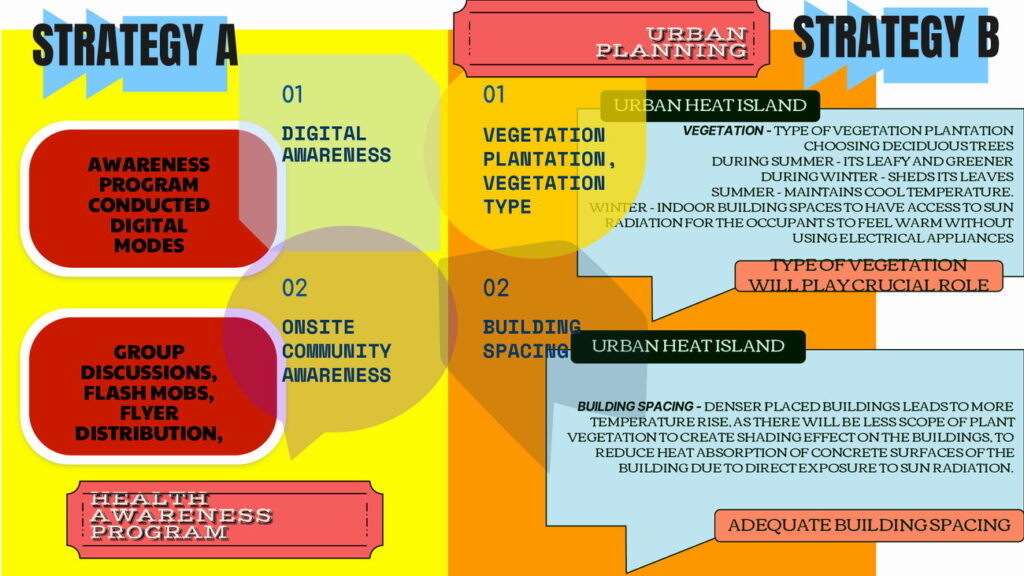By Dr. Shashi Ram, Construction, Technology & Management Specialisation; Former Assistant Professor, Department of Civil Engineering, National Institute of Technology, Warangal, Telangana, India
There has been a significant amount of research work available in the literature, but very less amount of literature references I have found which address the effect of climate change on the health of homo-sapiens and its race. And therefore, it is a demand of the time to approach this global issue with an interdisciplinary thought process.
This article will be streamlined towards physiological and psychological paradigms of turning out to be new epidemiological paradigms of heat stress for better comprehension of heatwave effects on health. Humans have a limited capacity to tolerate heat. As well as, acclimation capability is also limited for the human race under excessive thermal conditions.
The heat-bearing capacity of the human race cannot be increased. therefore, the only option we are left with is to address this increase in the average temperature during summers, which is due to the global temperature rise. One of the major contributing factors to global temperature rise is concrete jungles and the urban heat island effect due to the denser concrete jungles in the cities. This has aggravated the budding disaster heatwave impact on human race health. There are various ways by which heatwave affects human health, i.e., psychological effects, heatwave illness, and its epidemiological effects on mortality.
Before, heatwave affects human health in a severe manner and can lead to heatwave illness or fatality of homo-sapiens, it has psychological effects on the human race, of which the whole human race suffers during the summer season. These psychological effects are fatigue and tiredness, which is the result of excessive heat. When subjected to excessive heat, it becomes uncomfortable to live in for a human. Comfortable temperature is subjective and varies from human to human, but the comfortable range of temperature, which is taken as a benchmark, is 18-27/28 °C. so, when the temperature range increases than the set benchmark, it becomes uncomfortable for the human race and results in human body perspiration apart from an increase in body temperature. Which in return results into discomfort and psychologically affects the work efficiency and productivity of day-to-day life and at work. This psychological effect each human being suffers during heatwaves and excessive temperatures during summer. When human race is subjected to such excessive heat and temperature without requisite precaution and protection, then it results in severe effects on human race health in form of heatwave illness and its epidemiological effects which means it can cause death as well.
To bring resilience from heatwaves, the following framework is put forth. The framework is bifurcated into two sections to have a more streamlined approach.
The Solution Can Be Bifurcated into Two Strategies
A. Short-term Strategy
Reinforcing Health Awareness: Reinforcing health awareness is the need of the hour and of prime importance. As I have described in the above section, human heat bearing capacity cannot be increased. Educating our population to be alert with adequate protective equipment before going out and taking extra precautions while leaving the house will be required. Therefore, Awareness programmes will be required to have a heatwave understanding of its repercussions and precautions at the grassroots level will be required. Apart from the digital mode of awareness programmes. Therefore, an early warning system will be the first step to strengthen our heatwave adaptive capacity.
B. Long Term Strategy
Urban Planning: building design, green infrastructure, landscaping, even spacing of buildings to keep them evenly distributed within the area and not to cluster the buildings in one place, which adds up in the increment of heat island effect, which increases the temperature of the area and eventually for a region. Also, evenly distributed buildings with significant spacing among them open the opportunity for denser vegetation around the buildings. The strategies to reduce the urban heat island effect are important because the urban heat island effect acts as a catalyst in the epidemic we call it heatwave now a days.
A foolproof urban planning policy, which will be comprehensive on its own, will be a key guide here to bring the temperature of our country down as well as to meet the global set target of not letting the global temperature rise above 1.5°c. Only then will we be able to save our country, our planet Earth, from the heatwave, which is one more repercussion of climate change.

Disclaimer: The views expressed in this piece are those of the author/s and do not necessarily reflect the views or policies of AIDMI.